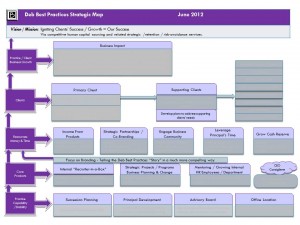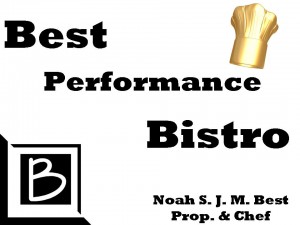I like to tell my son Noah, who turns eleven years old next month, that he attended business meetings with me long before he was born. A bit more jaded now that he's experienced the Family Health unit at the end of his 5th grade career (and on the brink of adolescence: sniggering like
Beavis and Butthead over even mild / unintended innuendos), he just asked me recently to tell him the story again. "You had the hiccups constantly, that's when I knew you were awake," I recalled. "I would start giggling a bit in the middle of a meeting, because your hiccups were both powerful and distracting." Although Noah grimaced, I knew he loved the story.
Adolescence aside, Noah's formative years have definitely been different from those of his parents.
Just like
Joel's and my formative years were different from our parents.
My dad made the happy mistake of taking me to the office at the age of four one Saturday morning to give my pregnant mother a break. That visit - and the subsequent breakfast together at a diner, full of other working stiffs - sealed the deal.
So that's where the money came from to buy the Good Humor ice cream, I concluded as I watched Dad pay the bill for our breakfast with dollar bills instead of the Good Humor dimes I usually handled. I wanted a job from that day forward. Fifteen years later, on a hot and aggravating journey north to start my freshman year at
SUNY Albany with the initial goal of a double Pre-Med / English major, my father, ignorant of how he had contributed to my journey fifteen years earlier, clearly thought I was wasting my time and my student loan money with a line straight out of
Mad Men, repeating the script my mother, his freshly-ex-wife, had followed. "Why aren't you staying home, getting a job, getting married and having kids?" Without missing a beat and a bit taken aback, I replied: "That would involve a date, which I haven't had yet. I'll keep you posted."
As I journey with Noah through his childhood, I marvel at how different his path is from mine and wonder how the mixed influence of witnessing both the career and entrepreneurial adventures of his parents will influence his own career and business decisions.
At the age of five, Noah wanted to be a chef and run his own business:
Best Performance Bistro. He talked about it all the time to everyone - his grandparents, his kindergarten teacher, us. I made a sign for his dream business; it hangs to this day on the wall of my office:
Last year, Noah and his friend Frankie spent a Saturday afternoon on a video game company
business plan, with Frankie as the CEO and Noah as his second-banana. Noah did not want to be Frankie's second-banana.
As Noah experienced school rules (particularly when a few of his buddies did not follow the rules), I reinforced the learning with an HR geek's eye to the future. "It so important to learn how to follow the rules in school. Because if children don't learn how to follow the rules in school, I usually end up firing them as adults," I hammered home, as Noah listened, wide-eyed.
Noah's career and business vision continues to evolve. He experiments with "Let's Play" videos, which in turn have strengthened his presentation skills to the point where his elementary school principal suggested that Noah consider a career in broadcasting. It's all good fodder for learning marketing on-the-job. Noah is also developing a video game and composing the accompanying soundtrack music, for separate potential sale on
Steam. We love his energy, ingenuity, and of course, him. His current goal is:
- Go to a 2-year SUNY college and take computer science, business and culinary arts courses;
- Finish his degree at a 4-year SUNY college (or at the Culinary Institute of America, if he gets a scholarship);
- Work for someone else first before a) starting his own successful video game software company and b) then, once he makes his fortune, opening his own gourmet pastry shop.
Noah is working on a new business plan where he is the CEO of his own video game software company, and his pals Charlie and Tim are part of his leadership team. I'm tentatively slated as the Chief Administrative Officer, grateful to achieve one of my goals to be part of the leadership bench plan of a start-up company. Per his request, I've also shared the business plan for
The Best Framing Company, which his father and I worked on together 7 years before Noah was born.
As his parents, Joel and I do our best to also give Noah the gift of authenticity: to see us as fellow creative humans as well as his parents and mentors, taking risks and experiencing, like
Edison, the occasional creative failures almost always in stride. For to do otherwise would stifle the music that streams from within each of us that must be expressed / shared.
I can't wait to see what Noah cooks up as he approaches adulthood. I'm honored to witness his journey, as we Bests continue to mentor each other.











